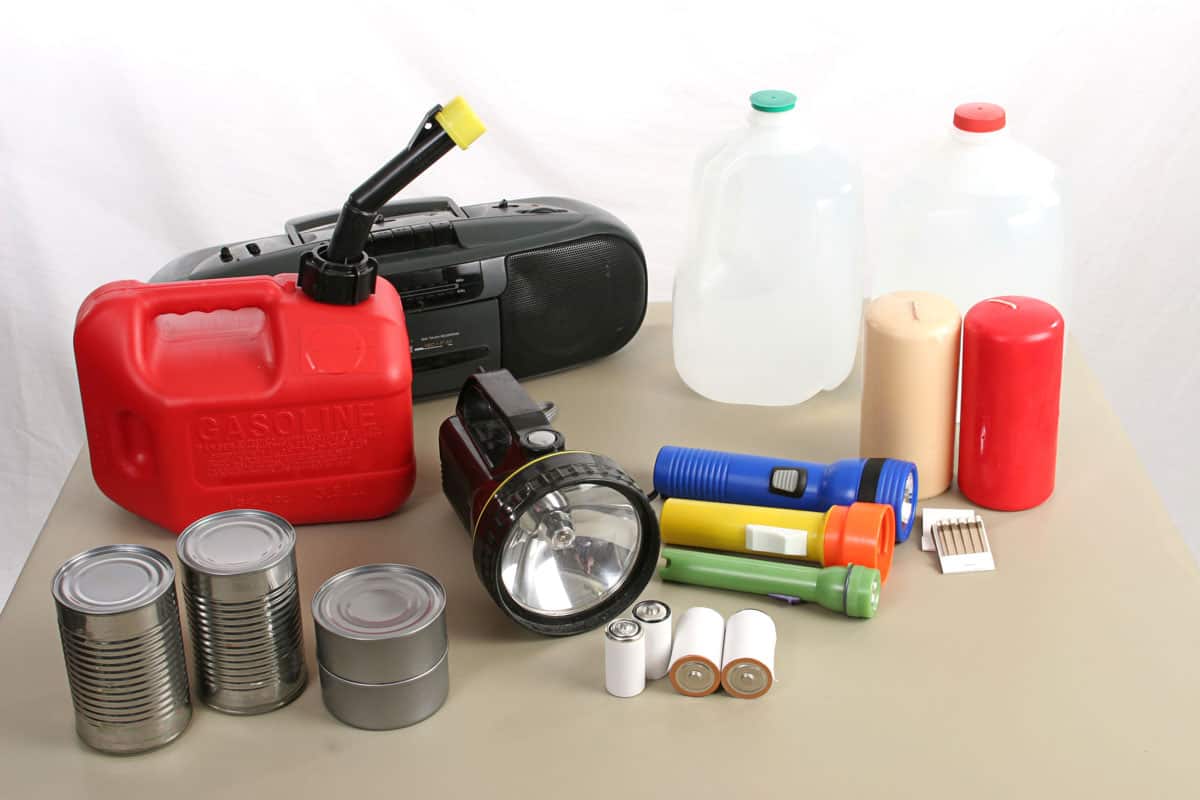5 Things to Do To be Prepared for a Hurricane
The American Red Cross has put together the top five things you can do to be prepared.

Hurricane, the very word creates anxiety because we have seen the stories and know the devastation these strong storms that can create. Just think Katrina, Harvey, Sandy, and Maria. Hurricanes can be life-threatening and cause serious hazards such as flooding, storm surge, high winds and tornadoes. If confronted with the possibility of a hurricane where you are, you can change the outcome from tragedy to survival for you and your family by doing as the Boy Scout motto suggests, “Be Prepared”.
The American Red Cross has put together the top five things you can do to be prepared. It is the gold standard of preparedness for these events. For every one of the hurricanes names above, the Red Cross was there.
1) Get a Kit
There are two kinds of kits to have in hand. One is for staying in your home, unless an evacuation is ordered. The other is a “go” kit with what you take with you in a duffel or backpack when you leave the danger zone.
You should have the basic supplies listed below:
- Water: Life straw or similar purifier for evacuation (2-week of supply of gallon jugs for home)
- Food: non-perishable, easy items like nutrition bars, nuts, or dried fruit (3-day supply for evacuation). Canned goods and similar non=perishable items for home (2-week supply for home).
- Flashlights
- Battery-powered or hand-crank radio (with a NOAA Weather Radio, if possible) Some cell phone Apps have this capability, but cell towers may go down.
- Extra batteries
- First aid kit
- Medications (7-day supply) and medical items
- Multi-purpose tool (Leatherman, Gerber, others)
- Sanitation and personal hygiene items
- Rain gear and wear sturdy shoes, durable clothes.
- Copies of personal documents (medication list and pertinent medical information, proof of address, deed/lease to home, passports, birth certificates, insurance policies)
- Cell phone with wall chargers and portable charger or even solar charger.
- Family and emergency contact information
- Extra cash
- Emergency blankets (lightweight silver survival blankets)
- Medical supplies (hearing aids with extra batteries, glasses, contact lenses, syringes, etc.)
- Baby supplies (bottles, formula, baby food, diapers)
- Pet supplies (collar, leash, ID, food, carrier, bowl)
2) Make a Plan
Who, what, when, where? Talk with your family about what to do if a hurricane strikes. Discussing hurricanes ahead of time helps reduce fear, particularly for younger children. Decide the following:
-
- How/who decides if we are going home or leaving with our “go” kit?
- If in different places, where shall we meet up? Home, local school, church?
- If separated, where shall we meet up? For example, at the local school or church
- How will we travel to our meet up places – family car, walk, bus?
3) Stay Informed
Listen to what is going on. Learn what the roads are passable. Where is there danger? Learn whether or not an evacuation is ordered and where shelter can be found.
- Make sure you have access to local and NOAA radio broadcasts:
- Find an online NOAA radio station
- Search for a NOAA radio app in the Apple Store >> or Google Play>>
- Purchase a battery-powered or hand-crank NOAA radio.
4) Check your insurance coverage
Whatever the damage, good insurance can help you recover without jeopardizing your families finance.
5) Print out and fill out Red Cross Safe and Well Cards
- Print out a card for every member of your household.
- Fill in your emergency contact information.
- Carry this card with you to reference in the event of a disaster or other emergency.
Cards can be found and printed at https://www.redcross.org or just search for Red Cross Emergency Contact Card. If you are in immediate need of help, please contact your local Red Cross » or find an open shelter »


